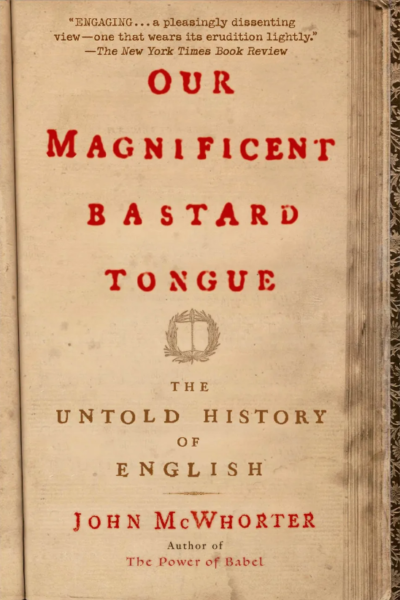 Now already some of you are noting a curious feature here which is that I keep using the word “Gauls” to describe these folks rather than “Celts” and you are probably wondering why. We’ve actually addressed this question before, but we ought to revisit it here, because I think any approach to “Celtic Warfare” is already potentially begging some pretty important questions (assuming it hasn’t stopped to address them) and, alas, begged the wrong answers (unless it has defined “Celtic” very narrowly). The problem, entirely unaddressed in the original video, is that there is a pretty big gap between what the Greeks meant by the word keltoi, what the keltoi may have meant by the word keltoi and most important what people today understand by the word “Celts”. Instead everyone gets smashed together, with all of the Celtic-language speakers mashed in under the label of “Celts”, a practice that hasn’t been acceptable in serious scholarship for at least 30 years. Let’s talk about why.
Now already some of you are noting a curious feature here which is that I keep using the word “Gauls” to describe these folks rather than “Celts” and you are probably wondering why. We’ve actually addressed this question before, but we ought to revisit it here, because I think any approach to “Celtic Warfare” is already potentially begging some pretty important questions (assuming it hasn’t stopped to address them) and, alas, begged the wrong answers (unless it has defined “Celtic” very narrowly). The problem, entirely unaddressed in the original video, is that there is a pretty big gap between what the Greeks meant by the word keltoi, what the keltoi may have meant by the word keltoi and most important what people today understand by the word “Celts”. Instead everyone gets smashed together, with all of the Celtic-language speakers mashed in under the label of “Celts”, a practice that hasn’t been acceptable in serious scholarship for at least 30 years. Let’s talk about why.
From antiquity we have two standard terms. On the one hand, the Greeks encountered a people in the Mediterranean and called them keltoi. From Caesar and Strabo we know that at least some peoples called themselves keltoi (or celtae), though as we’re going to see the people who did this are not actually co-terminus with this military system or with all the people folks (including the original video) think of as Celtic or any identifiable polity or political structure. In particular, Caesar reports that the folks living in what is today France (then Gaul) north of the Garonne and south of the Marne and the Seine called themselves celtae, which he takes to be equivalent to the Latin galli (Caes. BGall. 1.1). Strabo, meanwhile, describes peoples in Spain as both keltoi and also keltiberes (which enters English as Celtiberians, Strabo, Geography 3.2.15) as well as those in Gaul (Geography 4.1ff), but doesn’t make the claim that they call themselves that (instead repeatedly noting these groups broken up into smaller tribal units with their own names). Both Caesar (Caes. BGall. 1.1) and Strabo (Geography 4.1.1) go out of their way to stress that the folks they’re talking about do not have the same languages, institutions or mode of life, even those who are, to Strabo, galatikos – “Gallic” or more precisely “Galatian-like” (referring to the sub-group of Gallic peoples the Greeks were the most familiar with).
Galli, rendered into modern English as “the Gauls” (though the latter is not a descendant of that word, but a wholly different derivation), is likewise tricky. We’re fairly sure that both keltoi and galli are Celtic-language words, meaning that (contrary to the video) they’re both probably “endonyms”, (a thing people call themselves) but it is really common for peoples in history to take the endonym of the first group of people they meet and apply it to a much larger group of “similar” (or not so similar) people. The example I use with my students is “Frank”; – it was common in both the Eastern Mediterranean and later in East Asia to use some derivative of “Frank” or “Frankish” to mean “Western or Central European” – the term got applied to the Portuguese in China, and to both Germans and Sicilian Normans during the Crusades. It’s possible that galli in Latin is connected to the Galatai (Greek) or Galatae (Latin), the Galatians, a Celtic-language speaking La Tène material culture group who migrated into Anatolia in the 270s, but a number of etymologies have been proposed. It certainly wouldn’t be the first time the Romans named a massive ethnic group after the first people they met; this is how we get the word “Greek” when the Greeks call themselves Hellenes. So assuming off the bat that all of these different tribal groups that Caesar or Strabo treat as a cultural unity thought of themselves that way is most unwise. The most we know is that if you called some of these folks (but not all of them, as we’ll see) keltoi or galli, they’d say, “yeah, I guess that more or less describes me”, perhaps in the same way describe a Swiss person as “European” isn’t wrong, but it also isn’t quite right.1
Surely here linguistics will help us out? If we can identify a Celtic language then surely everyone who speaks that language will have that culture? First, this is yet more question begging; English is the official language of South Sudan and yet the South Sudanese are not English, British or American. Linguistic connections do not always imply ethnic or cultural connections extending beyond language. And, in fact, examining the Celtic language family is a brilliant way to illustrate this.
There is, in fact, a family of Celtic languages and indeed it is only in the sense of languages which you will see me use the word Celtic in a formal way precisely to avoid the giant pickle of confusion we are currently working through. Very briefly, it has been shown linguistically that the various surviving Celtic languages are related to each other and also to the extinct languages of pre-Roman continental Europe that were spoken in Gaul, Noricum and parts of Spain. So far so good, right, we have a nice, perfect match between our keltoi and Celtic-language-speakers, right?
Of course not. That would be easy! Because notice there that Irish, Manx, Scottish Gaelic and Welsh are all Celtic languages. But our sources are actually quite clear that at least the Romans and the Greeks did not consider these folks to be galli or keltoi. Indeed, Strabo explicitly defines the people of Britain against the keltoi as two distinct groups, making it clear he doesn’t think the inhabitants of the British Isles were “Celts” (Geography 4.5.2); Caesar doesn’t either (BGall. 4.21ff). Tacitus sees in the britanniae evidence of German, Iberian and Gallic influence, marking them as distinct from all three, but concludes that Gallic settlement is the most likely cause, a point on which we may be quite certain he is wrong, for reasons discussed just below (Tac. Agr. 11). So the groups described as “Celts” don’t entirely overlap with Celtic language speakers.
Well, surely here the archaeologists can help us out, right? Yes and no. On the one hand, we have a collection of object types, artistic motifs and archaeologically visible patterns that we associate with some of the areas settled by people who our sources regard as “Celts” and who were Celtic language speakers. The older of these two material culture groupings we call “Halstatt culture” after the original type-site in Hallstatt, Austria, though we find Hallstatt culture objects (remember, these are objects, not people, a thing to be relevant in a moment) in a territorial range that forms a sort of crescent shape embracing the northern edges of the Alps, from around 1200 BC to around 500 BC. We then shift to a material culture pattern which may have developed out of late Hallstatt culture which we call La Tène culture after its type-site of La Tène in Switzerland; it runs from around 500 BC (very roughly) to around 50 AD, with lots of subdivisions.
And just about all of the folks our sources will identify as “Celts” or “Gauls” tend to live in areas where where we find, by the third century or so, at least some elements of La Tène material culture (and many in places where they have the full package). So do we at last have a way to identify some “Celts”, by matching wherever we find La Tène material culture?
No. Of course not. That would be easy and history is not easy.
First, not all of the people our sources describe as Celts adopt all or even most of the elements of La Tène material culture. Most notably, the folks in Iberia who were keltoi (according to Strabo) or Celtiberians have some elements of La Tène material culture, but are notably missing others. They don’t have, for instance, the whole La Tène military package – mail in particular is absent in Iberia until the Romans arrive, and the La Tène swords they have are local variations of early La Tène I swords by the third and second centuries, not the La Tène II swords we find in most of the rest of the cultural zone.2 The artistic style in “Celtic” Spain is also different and unsurprisingly there’s a lot of Iberian borrowing. As a result, archaeologically, the keltoi of south-western Iberia aren’t some sort of carbon-copy of the keltoi of central France. There’s not no connection here, they are Celtic-language speakers and they have some La Tène stuff, but the Iberian Celtici are quite a bit further from the Helvetii (the folks who probably inhabited the La Tène site) than, say, the Senones.
Meanwhile, we find some La Tène material culture objects in southern Britain, but they don’t fully penetrate the Isles (despite the general assumption that all of the people of Britain and Ireland were Celtic language speakers) and many appear to be expensive, high-status imports. Indeed, while it was once supposed that the arrival of La Tène material culture objects signified some invasion or settlement of Britain by people from Gaul, an analysis of burial patterns3 demonstrates pretty clearly that this isn’t happening in this period, because burial practices in southern Britain remain distinct from those on the continent. Instead, we’re seeing trade.
Meanwhile, we find tons of La Tène material culture objects in cultural contexts that we know were neither “Celtic” in any cultural sense nor filled with Celtic-language speakers. The clearest instance of these are in Illyria and Thrace, who spoke Indo-European but not Celtic language (so a language as close to Celtic languages as Latin or Greek or German), where it’s clear that folks adopted at least some La Tène material culture, including weapons and armor. Of course by the third century, when it came to militaria, we’d have the same problem with the Romans, who by the end of the Second Punic War, had adopted a La Tène sword (albeit from Spain and with a different suspension system), a variant of the La Tène shield, a La Tène helmet type (domestically manufactured), and La Tène body armor (mail). If we didn’t have any surviving Latin language material, I am almost certain there would be nationalist pseudo-archaeologists claiming the Roman Empire was clearly some “pan-Celtic” imperial construct on that basis.4 And of course in the third century, a Greek variant of the La Tène shield, the thureos, begins showing up everywhere in the Hellenistic East, but that doesn’t make them Celts either (they’d be the first to tell you).
Meanwhile, there’s even more complexity than this, because objects of La Tène material culture aren’t the whole of archaeologically visible culture. There are building habits, burial habits, evidence for social organization and on and on. And those vary significantly within the La Tène material culture zone. I put this in the bibliography and I’m afraid it is a (necessarily) difficult and technical read, but if you want to get a sense of just how complex this can get, check out Rachel Pope’s efforts to define the Celts in the Journal of Archaeological Research (2022). To quote some of her conclusions, “In fact, ‘Celts’ as a historical label does not map neatly onto any archaeological tradition; it overlaps with late Hallstatt traditions in northeast France and less ostentatious archaeologies farther west … Nor did the name ‘Celt’ ever equate to all of Gaul, let alone all of Europe.”
So to be clear, we have Celtic-language speakers who aren’t called Celts by our sources and don’t have La Tène material culture (Ireland, N. Britain), Celtic-language speakers who are called Celts by our sources but don’t have the full La Tène material culture package (Spain, Portugal), non-Celtic language speakers who do have some of the La Tène material culture package but who are clearly not Celts to our sources (Thracians, Illyrians, Dacians, etc.), full La Tène material culture-havers who are explicitly not Celts in our sources (Caesar, specifically) and maybe speak a Celtic-language (the Belgae), and partial La Tène material-culture-havers who do speak a Celtic language but are still explicitly not Celts in our sources (S. Britain). Oh, and while we’re here, by the second century we also have La Tène material culture-havers who probably still speak a Celtic-language and are called Celts/galli by our sources but write inscriptions in Greek (the Galatians) and seem to have different religious structures and folks identified as Celts in our sources who are in the process of ditching large parts of La Tène material culture and learning Latin (Cisalpine Gaul), who might, à la Pope (op. cit.), actually be the direct, local descendants of the “original” Celts.
And then of course we have a band across parts of the Alps and central France where everything lines up: Celtic-language speakers with La Tène material culture who our sources call keltoi or galli and live in a place called Gallia by the Romans. But it would be a mistake to assume this is the cultural “heartland” of a “Celtic” people – indeed, La Tène material culture may be more deeply rooted in more Northern parts of France [than in] the Danube region, which has a lot of non-Celtic language speakers in it in this period! Because, to be clear, what we actually have are a host of smaller, tribal societies which share come cultural elements and differ in others, who seem to think of themselves primarily as members of a tribe and who lack notable “pan-Celtic” institutions, to which Greeks and Romans, needing a way to label their neighbors, took whatever ethnic signifiers they had and applied them (over)broadly.
[…]
At no point where all of these people united in a single polity (the closest they get is that most of them get conquered by the Romans) and there’s no indication that they ever saw themselves as a cultural or ethnic unity. And of course we haven’t even gotten into the idea that they might all be somehow closely ethnically related but let’s just go ahead and tag that as “very unlikely” and keep moving.
All of that is to make the point that any treatment of “Celtic” warfare is immediately begging an enormous question because “who were the Celts?” is at best an unanswered question and to be frank, probably an unanswerable question. Crucially, “the Celts” do not share a military system. Warfare among Celtic-language speakers in the British Isles isn’t necessarily based around La Tène material culture, nor is warfare in S. Portugal among peoples identified by our sources as keltoi; both areas seem to have very substantial regional variation. By contrast, the galli of central France and Cisalpine Gaul do seem to share at least substantial elements of a military system with the – according to Caesar – non-celtae of broader Gaul and as well as with the Galatians who live, I must repeat, in Anatolia (having migrated there in the third century). There is thus no “Celtic” military system which maps clearly onto either Celtic-language distribution or peoples described as keltoi by our sources.
Bret Devereaux, “Collections: Who Were ‘the Celts’ and How Did They (Some of Them) Fight?”, A Collection of Unmitigated Pedantry, 2023-05-12.
1. Especially in the sense that “European” gets used to mean “citizen of a country in the European Union”, which Switzerland is not. Mostly. The EU is complicated.
2. On these differences, see F. Quesada Sanz, “Patterns of Interaction: ‘Celtic’ and ‘Iberian’ weapons in Iron Age Spain” in Celtic Connections, vol. 2, eds. W. Gillies and D.W. Harding (2005) and in even more detail F. Quesada Sanz, “El Armamento Ibérico. Estudio tipológico, geográfico, functional, social y simbólico de las armas en la Cultura ibérica” (siglos VI-I a.C.) (1997). Interestingly, the Roman gladius Hispaniensis seems likely to have been a Roman adaptation of the peculiar Iberian La Tène swords, so you have the La Tène I sword making its way to Iberia, becoming distinctive, being adopted by the Romans instead of the more common (to them) La Tène II sword, thus becoming the gladius. On this, see F. Quesada Sanz, “Gladius Hispaniensis: an Archaeological View from Iberia” JRMES 8 (1997).
3. On this, see S. James, The Atlantic Celts: Ancient People or Modern Invention (1999).
4. On this, see M.J. Taylor, “Panoply and Identity During the Roman Republic” PBSR 88 (2020). On the helmet type and its evolution, see U. Schaaff, “Keltische Helme”, in Antike Helme (1988) for a rundown; P. Connolly Greece and Rome At War (1981), 121 also has a fantastic visual chart of the development of the type in the La Tène material culture zone, where you can see quite clearly where in the fourth century the Italic variants of this helmet type are breaking off from, while the La Tène helmets continue their development in other directions, later to be re-adopted by the Romans who thought it was so nice, they borrowed it twice.










